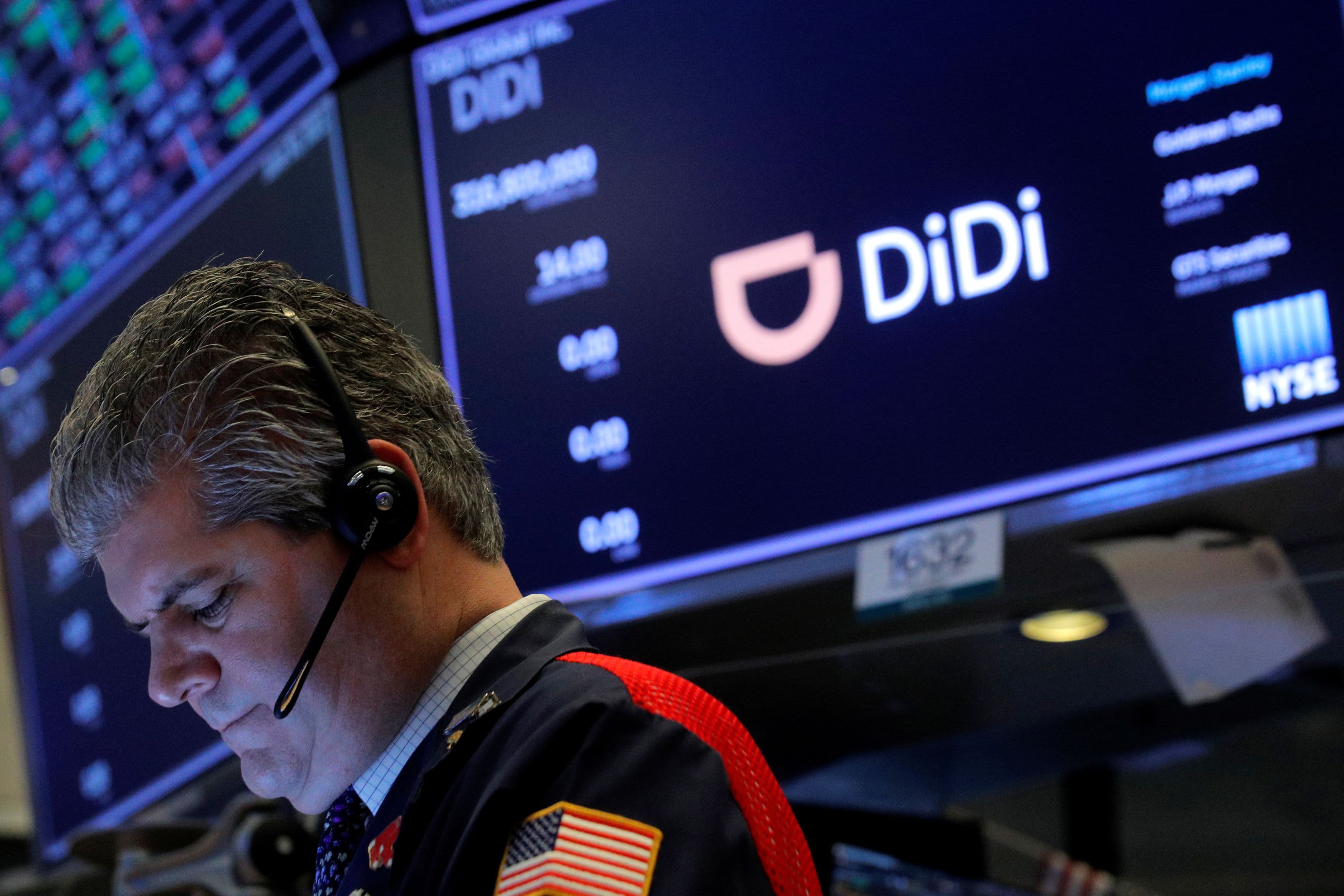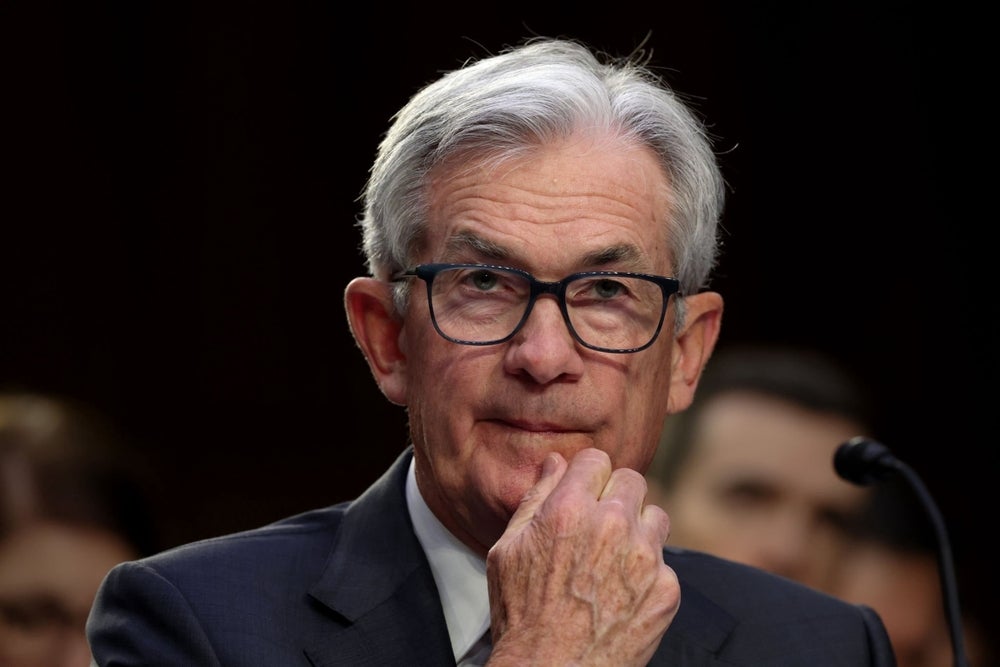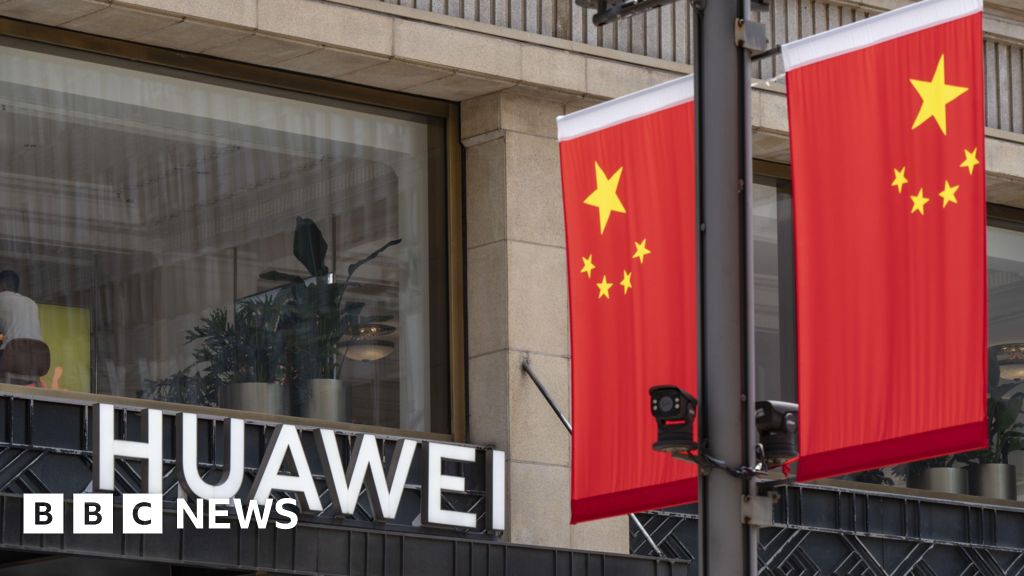Didi Chuxing’s stock dropped as much as 25% in pre-market trading on Tuesday, less than a week after the Chinese app went public on the New York Stock Exchange. The company’s stock dropped to $12.06 in pre-market trading Tuesday at 4:46 a.m., down from $15.53 at the previous market close. The drop comes after China declared late Friday that new users in the country will be unable to download the app while the business undergoes a cybersecurity audit. Traders reacted to the news Tuesday after being unable to buy or sell the shares on Monday due to market closures. Didi debuted on the New York Stock Exchange last Wednesday, with a market capitalization of roughly $68 billion. The company’s stock climbed about 16% on Thursday before falling just over 5% on Friday. The Wall Street Journal reported on Monday, citing people familiar with the subject, that Chinese regulators encouraged Didi to postpone its U.S. offering and assess its network security several weeks before it went public. Didi did not respond to a request for comment from CNBC right away. Didi “certainly should have contemplated canceling the IPO,” said Kendra Schaefer, a partner at Beijing-based strategic advisory firm Trivium China, on CNBC’s “Squawk Box Europe” on Tuesday. She went on to say that firms like Didi have large government relations departments that communicate with regulators on a regular basis. “It is definitely plausible that Didi wasn’t really sure which way to jump and under investor pressure so chose to simply go for it,” she said, adding that regulators may not have given Didi “a clear mandate.” After years of relatively lax regulation, China is beginning to crack down on its tech behemoths. Following the announcement of the Didi investigation, Chinese regulators launched cybersecurity investigations into Boss Zhipin, a publicly traded company in the United States, and subsidiaries of Full Truck Alliance. According to Reuters, Chinese regulators are investigating Didi for antitrust crimes. Beijing is also said to be investigating the company’s pricing strategy. Dissatisfied regulators could penalize Didi, according to its IPO prospectus. “We cannot guarantee that the regulatory authorities will be satisfied with the results of our self-inspection or that we will not face any penalties for any violations of anti-monopoly, anti-unfair competition, pricing, advertising, privacy protection, food safety, product quality, tax, or other related laws and regulations.” In the future, we expect regulators and the general public to pay more attention to and scrutinize these areas,” the business stated in its prospectus. Didi, which was founded in 2012, claims to have 493 million yearly active riders and 41 million daily transactions. It started expanding worldwide in 2018, and it already has 14 locations outside of China. Didi is substantially involved in making autonomous taxis a reality, and operates numerous mobility segments in addition to traditional ride-hailing. — Steve Kovach and Jessica Bursztynsky contributed additional reporting./n
Read MoreDidi shares crash as traders react to China’s crackdown
2021-07-06T09:34:08-04:00July 6th, 2021|





